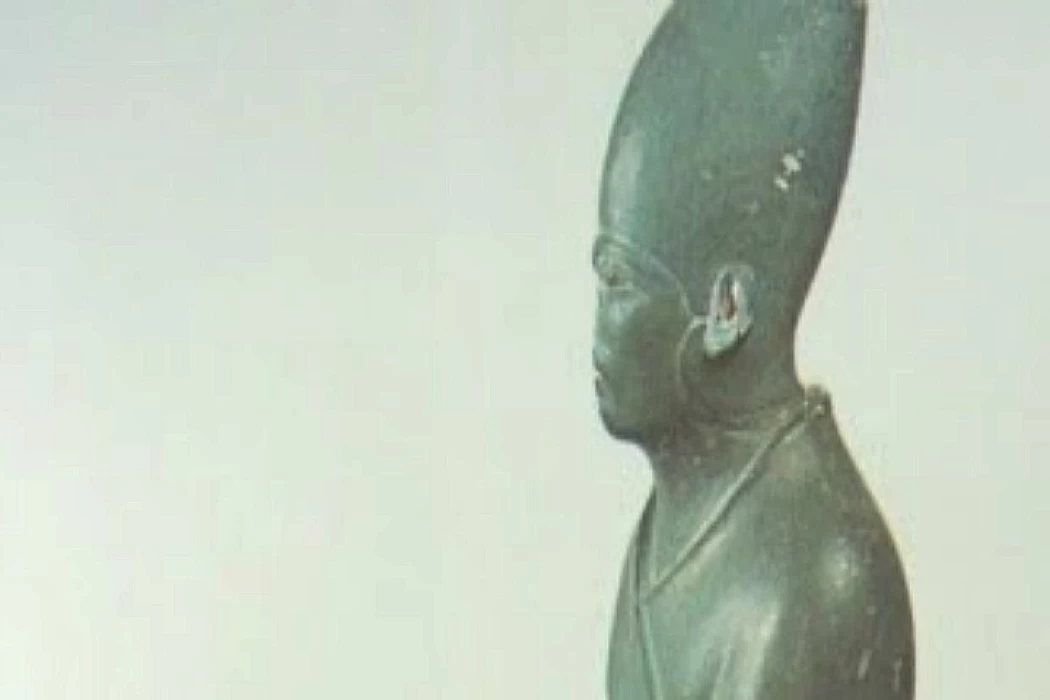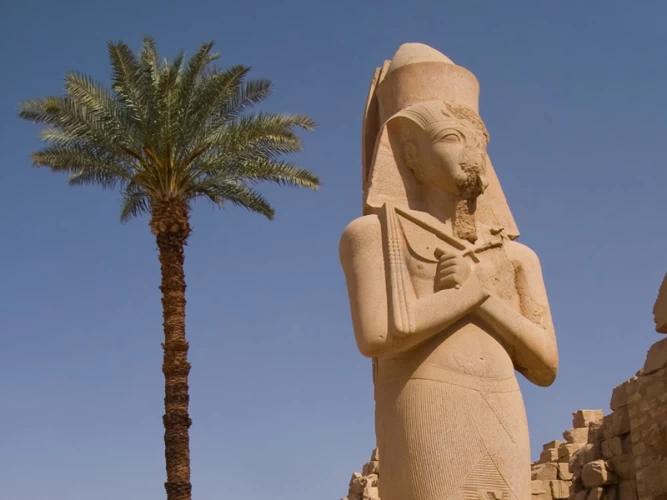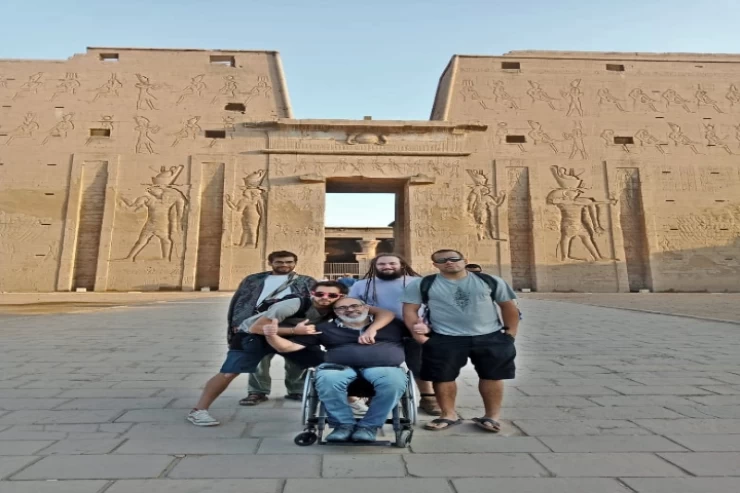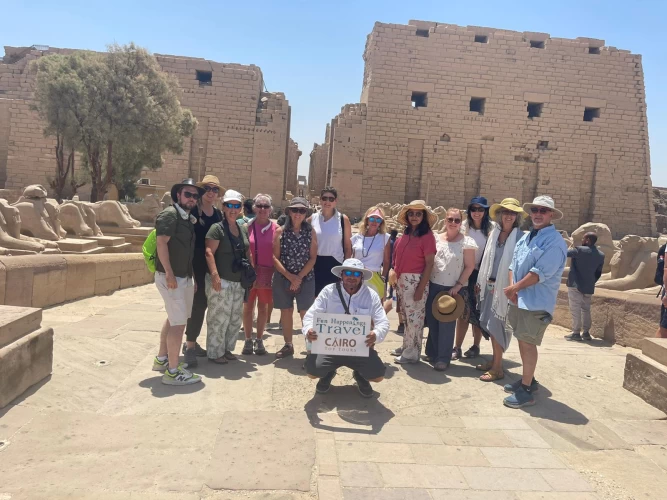
The Second Dynasty of Ancient Egypt History
The Second Dynasty of Ancient Egypt History
The Second Dynasty of Ancient Egypt is characterized by continuities and disruptions. It was created out of the turmoil established in the wake of the unification of Upper and Lower Egypt in the First Dynasty. In these years, much earlier tradition of the pharaohs and the state was being upheld while being punctuated by political instability, court intrigues, and emergent complexity of royal succession. The Second Dynasty further cemented certain cultural and political challenges Egypt was determined to encounter in the years thereafter. Thus, this period makes for a very interesting phase in the history of this ancient civilization.
Foundation of the Second Dynasty
The Second Dynasty begins with King Hotepsekhemwy in succession to the last ruler of the First Dynasty, Qa'a. Very little is known about the specifics of Hotepsekhemwy's reign; however, it is thought that he secured his own power through consolidating the policies of the first pharaohs and maintaining Egyptian unification. His reign was also the first that could truly be characterized as focused on securing the central authority of the pharaoh.
Considered after Hotepsekhemwy, his successor Djoser is often thought of as one of the most notable faces in the Second Dynasty, but his legacy cannot be as easily compared to that of the more famous Djoser of the Third Dynasty. Regardless, the pharaohs of the Second Dynasty continued to practice many of the traditions of their predecessors, supporting Egypt's central authority and enhancing the powers of the monarchy.
In fact, until now we do not know the reasons that led to the fall of the first dynasty and the establishment of a second family. We are unaware of the incidents that took place and ended with the capture of another family by the throne, and we also do not know the relationship between the two families if there is a fact that the king transferred from one family to another. We follow Manetho in his division of dynasties, and he undoubtedly had sufficient documentation to justify that division.
The first and the second dynasties are called the archaic period by historians, and it ended with the formation of the Old Kingdom and the beginning of the dynastic period by the third dynasty.
In fact, we do not see any change or sense of any effect of a sudden transition, so everything continued in its natural course, whether in terms of technical development or the organization of the government in general.
If you're planning to visit Egypt, then you should consider reviewing our detailed Egypt travel guide, as it is a very unique experience during Egypt Tours that is not comparable with any other things to do in Egypt.
You can enjoy one of the classic tours in Egypt, which all travelers would like to cruise the Nile River during Christmas tours in Egypt or while the best weather during Easter tours in Egypt. Covering most Cairo day trips and Luxor day tours in addition to Aswan excursions is why our travel information section is meant to be useful before proceeding with Egypt's best tours for those who seek culture, history of Egypt, and luxurious accommodation while sailing the Nile Valley.
These pharaohs did not differ from the previous kings in their deeds. Going to exploit the quarries of Sinai and trying to calm the north was one of their most important deeds.
Some traces indicating their activity were found, but no trace was found of the tombs of some of the kings of that family in Abydos, which is likely because they preferred to reside in the northern capital (Memphis) (white wall or white castle (according to the opinion of Dr. Ahmed Fakhry)) and preferred to construct their tombs. We see what these kings left as signs of palaces built by the kings after the fourth year of their rule.
and the temples they establish for various deities, especially the god “falcon” (the falcon), which is one of the greatest idols of the new capital. We also see from the seals of their employees' steady progress in the governmental organization and the presence of various departments.
Latest Articles
Admin
Seabourn Sojourn Cruise Stops in Safaga Port
The Seabourn Sojourn, the flagship vessel of Seabourn Cruise Line's ultra-luxury fleet, was built in 2008 at the T. Mariotti shipyard in Genoa, Italy. Measuring 198 metres, it can accommodate up to 450 guests in its 225 spacious all-suite staterooms.
Admin
Norwegian Sky Cruise Stops in Safaga Port
Norwegian Cruise Line operates a cruise ship called the Norwegian Sky. It was constructed in 1999 and can accommodate 2,004 passengers in addition to 878 crew members. The ship has several dining establishments, lounges and bars, a spa and fitness center, swimming pools, and a number of entertainment areas.
Admin
Explora II Cruise Stops in Safaga Port
Explora II, the second vessel in the Explora Journeys fleet, sets sail in 2024 to redefine luxury cruising. With 461 ocean-front suites, 9 culinary experiences, and 4 pools, this haven of sophistication and sustainability promises an unforgettable "Ocean State of Mind" journey to inspiring destinations.
Admin
Mein Schiff 6 Cruise Stops in Safaga Port
The Mein Schiff 6 is the latest cruise ship in the renowned TUI Cruises fleet, offering passengers a luxurious and sophisticated cruise experience. At 315 metres long, this floating resort features a range of dining options, entertainment, and recreational facilities, including a spa, fitness centre, and sports amenities.
Admin
Mein Schiff 4 Cruise Stops in Safaga Port
When the Mein Schiff 4 cruise ship docks in Safaga, Egypt, passengers are granted access to a realm of ancient wonders. Aboard this state-of-the-art vessel, guests can embark on meticulously curated shore excursions that showcase the region's most iconic landmarks, including the Giza Pyramids, the enigmatic Sphinx, and the remarkable tombs and temples of the Valley of the Kings in Luxor.
Admin
MS Europa Cruise Stops in Safaga Port
The Silver Moon, Silversea's latest flagship, is a luxury cruise ship that offers an exceptional travel experience for Venezuelans exploring Egypt. With a capacity of 596 guests and an impressive 40,700 gross tonnes, the Silver Moon maintains the small-ship intimacy and spacious all-suite accommodations that are the hallmarks of the Silversea brand.
















